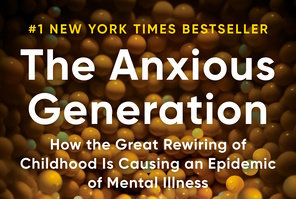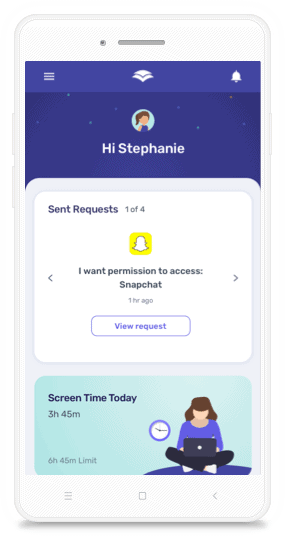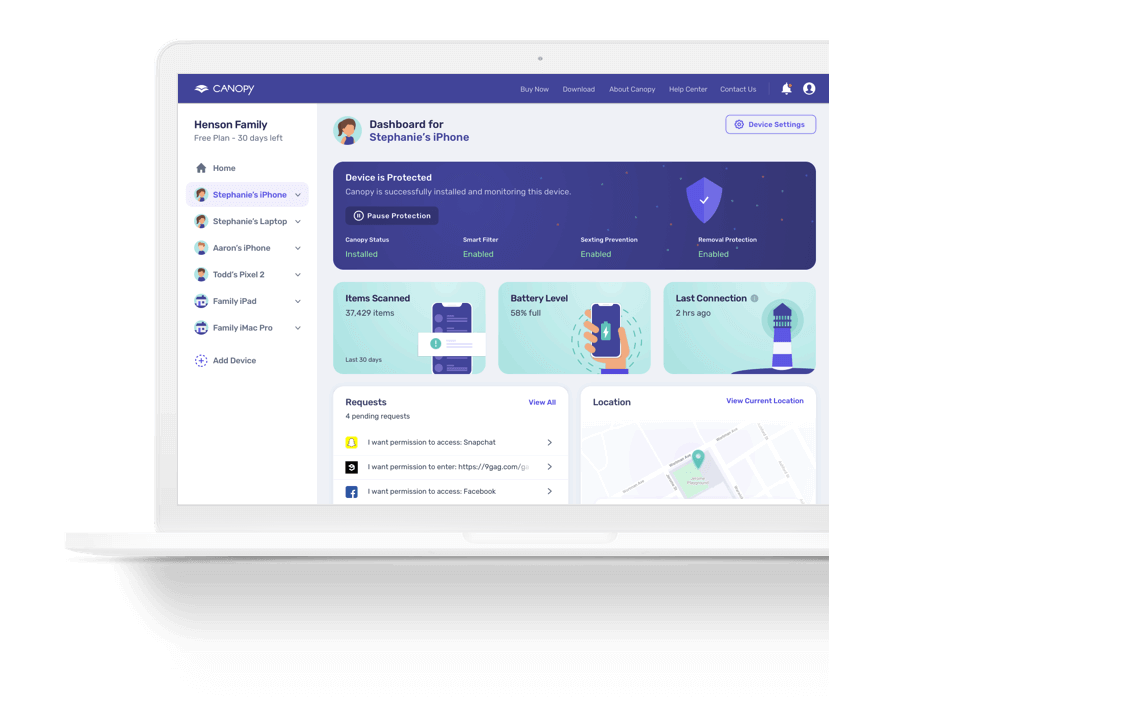Canopy's Review and Summary of The Anxious Generation
As an Amazon Associate, we earn from qualifying purchases. When you click on links to various books on this website and make a purchase, this can result in our company earning a commission.
The Anxious Generation Review
Parents today do not have it easy. In many ways, they may have a much harder time than their own parents did raising them. Sure, they may have watched a little too much TV now and again, but were they getting X amount of recreational screen time hours a day on average like today’s kids? Maybe some of the younger parents experienced social media as children in its early days, but could the Facebook of 2006 really be considered as detrimental and dangerous to kids as the TikTok of 2024?
Today’s parent needs to understand the vast differences between their own childhood and that of their kids in the 2020’s. A great resource is the recently published book, The Anxious Generation, which functions both as a detailed explanation of what our children are going through in today’s connected world, as well as a how-to guide for minimizing dangers to your children and maximizing the potential of their most formative years. Below, we present a review and summary of the Anxious Generation.
Who is Dr. Haidt?
An expert on the psychology of morality, Dr. Jonathan Haidt has a PhD in psychology and has studied, taught, and researched fields pertaining to sociology, anthropology and psychology. In 2018, he wrote “The Coddling of the American Mind: How Good Intentions and Bad Ideas Are Setting Up a Generation for Failure.” It focused on political polarization, the campus political culture, and modern parenting and childhood. The Anxious Generation is a natural sequel to the Coddling of the American Mind.
The Anxious Generation’s message
In The Anxious Generation, Dr. Jonathan Haidt proposes that American children went through a “Great Rewiring” in 2010-2015. A few critical factors came into play within a few years of each other, such as the invention of the iPhone. Kids were suddenly able to be online at all times, and this came after decades of parental over-protection in real-world activities. In short, parents began restricting their children from participating in what used to be considered normal, healthy (in many cases outdoor) activities, while at the same time they gave them free range in the seemingly safe but actually very dangerous world of the internet.
Over-protection in the real world
Many older parents remember a time in their childhoods when they were given free range in their neighborhood to play with their friends and run errands at a relatively young age. Younger parents probably had less of this freedom, and our children in the 2020’s cannot even imagine it. Parents are less likely to let their kids roam the neighborhood alone, and fewer and fewer teenagers are getting their driver’s licenses when they come of age.
A lot of this is due to an exaggerated view (in many or most cases) of dangers a child may encounter outside the home, perhaps combined with a lesser view of children’s capabilities. Kids are, for lack of a better word, coddled and given less and less responsibility. This in turn impacts their personalities and habits as they grow, and by the time they may want to leave the home, they find themselves much less prepared than their parents were (not to mention their grandparents!) when they were in the same situation at a similar age.
Under-protection in the online world
While many parents have a perhaps inflated view of dangers in the immediate area outside the home, the opposite is true regarding the virtual world. A 35 year old parent with a 10 year old child demanding a smart phone was a young adult during the “Great Rewiring” of childhood (2010-2015), whereas his kid was born into a completely new technological reality. The parent may not fully realize the implications of granting his child unfettered access to the digital world, which in many ways can be as dangerous (or more so!) than the real world.
For instance, if his kid goes off to buy some groceries a few blocks away, it is unlikely he will encounter a predator on his way to the store, and the chances are limited by the number of child predators physically residing in his neighborhood. An unsupervised kid online, however, is a target for literally millions of anonymous predators and sextortionists throughout the world, whose abilities in ensnaring children are now augmented by generative AI and deepfake technology.
Dr. Haidt’s solutions
Dr. Haidt presents several ideas that can help improve the current situation. Some are relevant for the government (legislation), some for schools, and some for parents. There is some great food for thought here, and we don’t want to “spoil” it in our review – go read the book!
We will elaborate on only two of the tips for parents that Dr. Haidt mentions: setting up parental controls and limiting screen time.
For children of a certain age group, Dr. Haidt recommends setting up parental controls, but specifically mentions that he is not in favor of invasive monitoring apps which let a parent know everything that a child does, writes, or receives online.
Canopy is a great parental control app that follows his parameters. It blocks children from inadvertently or purposefully seeing explicit content while browsing online, and it allows parents to choose which apps, websites, and content categories (gaming, gambling, social media, etc.) that their children have access to. Canopy will notify a parent if his child is on the sending or receiving end of sexting, but otherwise will not invade the child’s privacy and allow parents to view all messages a child sends or receives. Canopy believes in parents and children building a healthy relationship with each other that is based on open and honest dialogue, and ideally includes a comprehensive online safety agreement.
Dr. Haidt presents screen time allowance recommendations by age group. Canopy also allows for screen time management and gives parents the ability to allow children to access the internet only during certain times. Kids can request additional time, and as they grow their allowances can of course be increased according to their parent’s wishes.
Conclusion
We at Canopy highly recommend the Anxious Generation. We love Dr. Haidt’s gripping and entertaining writing style, and we certainly agree with his thesis, his concerns, and his recommendations for the government, schools, and parents. A parent whose child is begging for a phone, or staring zombified at a computer screen, or chatting with strangers online behind a closed door at all hours of the day and night does not need to feel ashamed or lacking because he or she may not fully grasp the dangers of today’s digital landscape and how to grapple with them.
It is a very different world than the one we grew up in, and no formal body taught or prepared us in how to parent in these very difficult circumstances. Thankfully, Dr. Haidt presents us with an indispensable primer that parents will find both interesting and essential to their digital parenting. Run, and do not walk, to pick up your copy of the Anxious Generation today!






